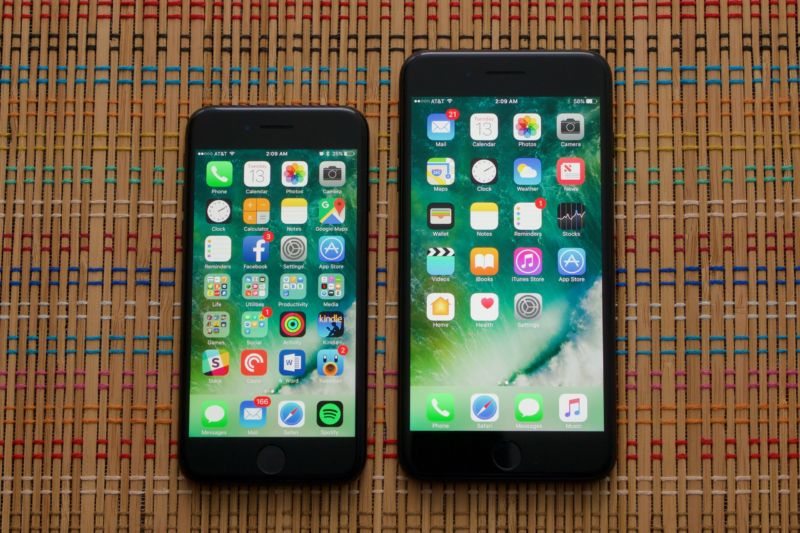
Apple has been limiting the modem speeds of the iPhone 7 built for Verizon Wireless's network in order to match the slower speeds of the AT&T iPhone, according to reports Friday by Bloomberg and Recode.
The Verizon iPhone 7 uses a Qualcomm Snapdragon X12 modem that is capable of LTE download speeds of up to 600Mbps, while the AT&T model uses an Intel XMM 7360 that goes up to 450Mbps. But Apple limits the Verizon model so that it performs similarly to the AT&T one; to achieve this, Apple may disable certain features of the network chip, Bloomberg reported. Bloomberg's report is based on data from testing firms including Cellular Insights, which wrote about its findings on its blog.
"Out of all supported features by Qualcomm’s solution, Apple has chosen to implement 3-Way Carrier Aggregation on the downlink and 2-Way Carrier Aggregation on the uplink for contiguous Band 7 or Band 41," Cellular Insights analyst Milan Milanovic wrote. "Higher Order Modulation (DL-256QAM, UL-64QAM), and Higher Order MIMO (4×4 MIMO) have not been implemented. Therefore, the peak theoretical downlink speeds are limited to 450Mbps when aggregating three 20MHz wide LTE component carriers."
The Verizon iPhone was still slightly faster than the AT&T one despite not reaching its full capabilities, according to field tests by Twin Prime, Bloomberg wrote. The iPhone was significantly slower on Verizon than the Samsung Galaxy S7, which uses the same Qualcomm chip.
The Verizon model is also used for the Sprint network, while the AT&T model is also used on the T-Mobile USA network. The AT&T/T-Mobile variant does not support the CDMA voice and data networks used by Verizon and Sprint.
An iPhone user isn't going to hit 450Mbps under typical network conditions, so it's unlikely anyone would notice the speed limitation without doing some extensive testing. But the enforcement of consistent speeds despite the use of different chips demonstrates how Apple and carriers view the importance of similar performance across networks, even when that requires limiting one phone's capabilities.
Apple historically used Qualcomm modems for the iPhone but this year decided to use both Qualcomm and Intel ones. "By pitting Intel against Qualcomm, the company may be trying to improve its negotiating position on price," Bloomberg noted.
Apple also uses components from multiple suppliers to make sure it can produce enough iPhones to meet consumer demand. For example, Apple used both Samsung and TSMC to make the A9 chip for the iPhone 6S and 6S Plus.
Since carriers had no control over the modem decision, "it would be a little unfair if Apple allowed, say, Verizon and Sprint to say that their iPhone performs better than AT&T and T-Mobile’s," Jackdaw Research analyst Jan Dawson said, according to Recode.
Dawson also noted that it isn't uncommon for phone makers to leave some features disabled to save on battery life, "so you rarely see a phone that’s maxed out on all possible performance parameters."
Apple provided a statement to Bloomberg and Recode confirming that iPhones across different networks perform similarly, but the statement did not address how Apple limited the speeds of the Qualcomm modem. “In all of our rigorous lab tests based on wireless industry standards, in thousands of hours of real-world field testing, and in extensive carrier partner testing, the data shows there is no discernible difference in the wireless performance of any of the models," Apple said.
We contacted Apple today, but the company declined to provide any further information.
reader comments
45